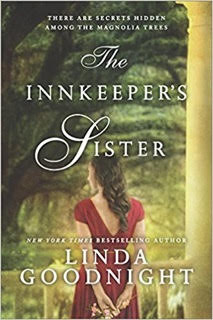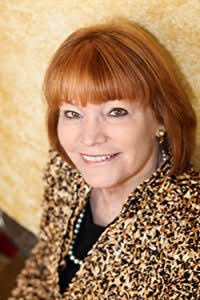
Grayson Blake always has a purpose and never a moment to lose. He's come home to Honey Ridge to convert a historic gristmill into a restaurant, but his plans crumble like Tennessee clay when the excavation of a skeleton unearths a Civil War mystery and leads him back to a beautiful and familiar stranger.
Once a ballet dancer, now co-owner of the Peach Orchard Inn, Valery Carter harbors pain as deep as the secrets buried beneath the mill. A bright facade can't erase her regrets any more than a glass of bourbon can restore what she's lost. But spending time with Grayson offers Valery a chance to let go of her past and imagine a happier future. And with the discovery of hidden messages in aged sheet music, both their hearts begin to open. Bound by attraction, and compelled to resolve an old crime that links the inn and the mill, Grayson and Valery encounter a song of hurt, truth, and hope.
Secrets are like boils. They fester and throb, but until the hard core of truth is released, there is no relief.
Valery Carter lived every day with that festered, throbbing boil. With trowel in hand, she poked at the weeds springing up around headstones tilted and shrunken by time. The Portland family cemetery hadn’t been used as burial grounds in a century, but something about its quiet dignity, about the way it had honored the dead for nearly two hundred years, compelled Valery to tend the small space. Hidden to the south of Peach Orchard Inn in a quiet, shady glen, the gravestones had long since faded to either barely visible or impossible to decipher. Four of the graves haunted her. Baby graves. She couldn’t leave them unattended. Charlotte Portland Gadsden, who’d lived through the Civil War clinging with delicate British fingers to this land and the antebellum mansion that now housed Peach Orchard Inn, had lost four children and buried them here, marking their tiny graves with white stones, now gray, and the dates of their births. Only one infant had survived more than a day. Anna Cornelia had breathed five days before the angels carried her away. Tiny baby, pink and pretty and helpless. Five days wasn’t enough for Anna to know how desperately her mother had loved her. Valery rubbed a gloved hand over Anna’s headstone, scraping away the bird droppings and lichens, tracing the name with her fingertip. She dug fresh dirt to bolster the tilting stone and removed every weed that tried to hide the memory of the baby’s short life. The knock-out roses she’d planted last year looked dead, but she remained as hopeful as the bluebird flitting through the trees in search of a nesting place. Babies deserved sunny daffodils and sweet pink roses. She felt a kinship with the lost babies and with the mother who had, no doubt, knelt in this very spot to weep and mourn and wonder why. Tears blurred Valery’s vision. She understood a little about weeping and wondering why, about bearing the unalterable. Perhaps that explained her affinity for the cemetery every bit as much as her need to numb the memory. She knew she had a problem. What she didn’t have was a solution. Julia and Mama frowned their disapproval, but Lord forbid either of them sit down for a long discussion. Mama claimed Valery would be happier if she attended church more often, otherwise feigning ignorance as if she wasn’t as much to blame as Valery. Julia simply pretended the problem didn’t exist. The elephant in the room loomed large in the Carter family. The Carter women held their secrets close to the vest, even the ones they didn’t know. A capricious wind rustled the overhead tree branches so that they rubbed together like dry bones. Valery shivered against the chill, though not from superstition or fear. The cemetery was a place of peace and rest for her as much as for the generations of Portlands and a few Civil War soldiers who’d died at Peach Orchard, then a thriving farm. Except for the deep, festering boil that ached continually, Valery was, she sometimes thought, as dead as they were. She’d felt alive once, but she didn’t dwell there any longer. Inside her zippered fleece jacket the cell phone vibrated. She sat back on her heels, pulled off a glove and fished the device from her pocket. Don’t forget, the text read, guests arriving at four. Playing hostess at the bed-and-breakfast was Valery’s responsibility today, but even when Julia was away in Knoxville with her new husband and son, she worried that Valery would let her down. Sad but true. She’d let them all down in so many ways, most of all herself, but she still clung to her sister’s new marital happiness as proof that she could do something worthwhile. Hadn’t she been the one to exonerate Eli, Julia’s husband, and save him from another prison term? She sighed heavily. None of that mattered. She was who she was. It was hours yet until four o’clock and the guests’ arrival. Julia’s vote of no confidence loomed loud and clear. She texted back. Got it covered. Shoving the device back inside her jacket, Valery rose, touched each little stone and murmured soft reassurances to the babies before turning toward Peach Orchard Inn—the house where all four had been born and all four had died. 
NY Times and USA Bestseller, Linda Goodnight writes novels to touch the heart as well as to entertain. Her emotional stories of hope have won the RITA , the Carol, the Reviewer’s Choice, and numerous other industry awards. A small town girl, Linda remains close to her roots, making her home in rural Oklahoma. She and husband have a blended family of eight, including two teenagers recently adopted from Ukraine. Many of her books are about family and children and rightly so, as she draws her deeply emotional stories from her surroundings, her great love of family, and from personal experiences as a nurse and teacher.
Website | Facebook | Twitter
0 Comments
Leave a Reply. |



















